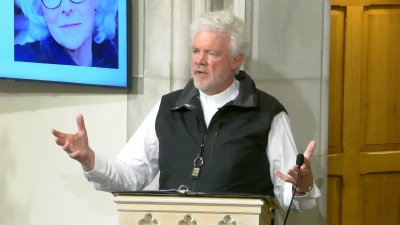Said one Jewish scholar, “It is frustration and sorrow that are our passports to fellowship and sympathy. Life teaches us at every turn how insufferable are those who have never suffered.”[1] Yes? Have you experienced the insufferability of the unsuffering: the frozen face, the unmoved affect, the narcotic numbness of the unsuffering?
When Katie Lancaster and Melanie Flynn train our Stephen Ministers, they know that one of the greatest obstacles they have to overcome is a stubborn lack of self-confidence. “I can’t do this,” they think. “I didn’t go to seminary. I don’t have the skills.”
[1]Slightly adapted from Robert Gordis, Book of God and Man (University of Chicago Press, 1978), p. 114.








